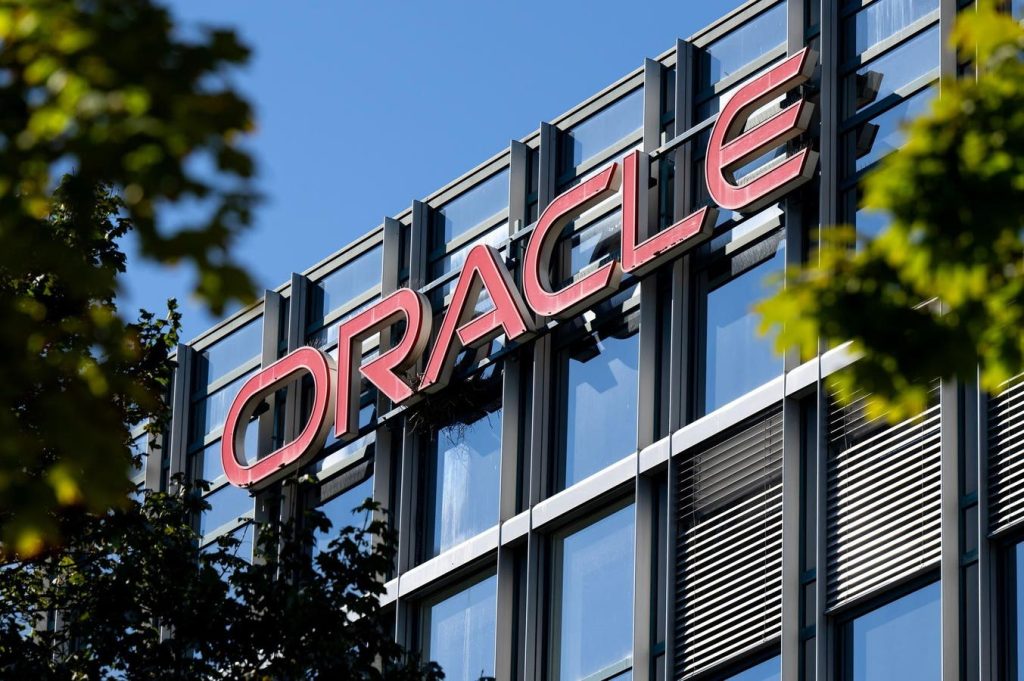Oracle’s AI Success Creates Billionaire Boom
In a remarkable display of how technological innovation can generate immense wealth, Oracle’s strategic pivot toward AI cloud computing has not only propelled the company to new heights but has also created multiple billionaires in its wake. Over the past year, Oracle has transformed its business model to capitalize on the explosive demand for artificial intelligence infrastructure, securing landmark contracts with industry leaders like OpenAI in deals reportedly worth hundreds of billions of dollars. This strategic realignment has sent Oracle’s stock soaring by nearly 115% in just six months, catapulting the company to a market capitalization of $933 billion and securing its position as the 12th most valuable company globally. The company’s success story highlights how established tech giants can reinvent themselves in the face of emerging technologies and reap tremendous rewards.
The most dramatic illustration of Oracle’s meteoric rise came on September 10th, when the company’s stock surged an astonishing 36% in a single day following an earnings call that projected a 700% increase in cloud infrastructure revenue over the next four years. This extraordinary growth forecast, primarily driven by AI-related services, added nearly $100 billion to cofounder and CTO Larry Ellison’s personal fortune in just 24 hours. Ellison, who co-founded Oracle in 1977, has seen his wealth skyrocket to an estimated $392.3 billion, cementing his position as the world’s second-richest person. The scale and speed of this wealth creation demonstrate the outsized rewards that can accrue to technology pioneers who successfully anticipate and adapt to major shifts in the industry landscape.
Among the beneficiaries of Oracle’s success are two newly minted billionaires: Jeffrey Henley, the company’s former chairman and CFO, and Edward Screven, its former chief corporate architect, both now worth an estimated $1.1 billion each. Henley’s journey to billionaire status represents a classic corporate success story. After earning his MBA from UCLA and serving in executive roles at Pacific Holding Company and Saga Corporation, he joined Oracle as CFO in 1991, eventually rising to become chairman of the board when Ellison stepped down from that role in 2011. Throughout his career, Henley has maintained substantial holdings in Oracle while also using his wealth philanthropically, notably donating $50 million to his alma mater, UC Santa Barbara, to support technological innovation. Forbes estimates that beyond his current Oracle holdings worth $830 million, Henley has realized approximately $206 million after taxes from exercising options and selling stock since 2003.
Edward Screven’s path to billionaire status reflects the rewards of long-term commitment and technical expertise in the technology sector. After studying computer science at Carnegie Mellon University, Screven joined Oracle in 1986 and remained with the company for 38 years until his retirement as chief corporate architect in February 2025. Even in retirement, Screven maintained ties to Oracle’s expanding ecosystem, serving as the company’s representative on the board of Ampere Computing Holdings LLC, a semiconductor design company partially owned by Oracle that was later acquired by SoftBank Group for $6.5 billion. Screven’s wealth derives from approximately $900 million in Oracle shares and an estimated $130 million (after taxes) from exercising options and selling stock throughout his career. His story exemplifies how technical expertise combined with loyalty to a single organization can lead to extraordinary financial rewards in the technology sector.
Oracle’s fourth billionaire, Safra Catz, with an estimated fortune of $3.4 billion, recently announced a significant leadership transition at the company. After serving as CEO for 11 years following Ellison’s departure from that role, Catz has moved into the position of executive vice chair. Oracle will now be led by co-CEOs Clay Magouyrk and Mike Sicilia, both longtime Oracle executives who will receive substantial stock option grants worth $250 million and $100 million, respectively, upon vesting. Currently, Magouyrk and Sicilia own Oracle shares valued at approximately $38 million and $37 million, indicating they still have considerable ground to cover before joining their colleagues in the billionaire ranks. This leadership transition marks a new chapter in Oracle’s corporate history and raises questions about the future role of Henley, who currently serves as non-executive vice chairman and wasn’t mentioned in the announcement regarding leadership changes.
The creation of multiple billionaires within a single company highlights the concentrated wealth generation that can occur in successful technology enterprises. Oracle’s transformation from a traditional enterprise software company to a major player in the AI cloud infrastructure space demonstrates how adapting to technological shifts can create enormous value. The company’s journey also illustrates the substantial rewards that can accrue to those who help build and guide technology giants through various market transitions. As Oracle continues its expansion in the AI sector, the potential for further wealth creation remains significant, particularly for the new leadership team if they can execute on the ambitious growth projections that have so dramatically increased the company’s valuation. What remains unclear, however, is how this leadership reshuffling will affect the roles and influence of Oracle’s billionaire executives, particularly Jeffrey Henley, as the company enters this new phase focused heavily on artificial intelligence infrastructure.











